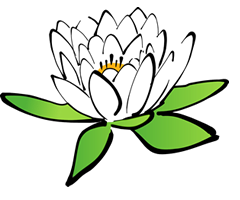1、 He │ denies │ her │ nothing. 他对她什么都不拒绝。
2、 He │ asked │ me │ to come back soon. 他要我早点回来。
3、有时,主语或宾语后会出现一个名词(短语)、代词、从句,用以对充当主语或宾语的名词或代词进行解释或补充说明,我们称之为同位语。如:
4、 Our well │ has gone │ dry. 我们的井干涸了。
5、 Mr. Smith, our new teacher, is very kind to us.
6、 The sun was shining.
7、 They found the house deserted.
8、 The beauty of the music brought tears to her eyes.
9、S + V + O + C(主 + 谓 + 宾 + 宾补)
10、 He knocked at the door.
11、 He │ showed │ me │ how to run the machine. 他教我开机器。
12、 The sun │ was shining.太阳在照耀着。
13、 I saw a cat running across the road.
14、 We Chinese people are brave and hard-working.
15、 He │ fell │ in love. 他坠入了情网。
16、 Anne lived in Amsterdam during World War II.
17、 What he said │ does not matter. 他所讲的没有什么关系。
18、 This is the second most important sign of friendship.
19、 She │ ordered │ herself │ a new dress. 她给自己定了一套新衣裳。
20、 This is an English-Chinese dictionary.
21、 It is getting dark.
22、 She │ cooked │ her husband │ a delicious meal. 她给丈夫煮了一顿美餐。
23、 This is my friend Harry.
24、 We both come from Hunan.
25、同位语 :同位语是在名词或代词之后并列名词或代词对前者加以说明的成分,近乎于后置定语。如:
26、S + Vi(主 + 谓(不及物动词))
27、状语 :状语修饰动词、形容词、副词或全句,说明方式、因果、条件、时间、地点、让步、方向、程度、目的等。
28、 He enjoy reading.
29、 The moon rose.
30、 I want to have a cup of tea.
31、 The dinner │ smells │ good. 这顿饭闻起来好香。
32、 He admits that he was mistaken.
33、 He │ brought │ you │ a dictionary. 他给你带来了一本字典。
34、 I gave my car a wash. = I gave a wash to my car.
35、 I stayed awake on purpose until half past eleven in order to have a good look at the moon by myself.
36、 What he said does not matter.
37、 The war made him a soldier.
38、 What makes him think so?
39、 The trouble │ is │ that they are short of money. 麻烦的是他们缺少钱。
40、 He bought me a dictionary. = He bought a dictionary for me.
41、 I often find him at work.
42、 They │ appointed │ him │ manager. 他们任命他当经理。
43、 I │ told │ him │ that the bus was late. 我告诉他汽车晚点了。
44、 I showed him my pictures. = I showed my pictures to him.
45、 You three take these seats.
46、 His face │ turned │ red. 他的脸红了。
47、 She ordered her mother a new dress. = She ordered a new dress for her mother.
48、 The trouble is that they are short of money.
49、 I │ saw │ them │ getting on the bus. 我看见他们上了那辆公共汽车。
50、 I told him the truth. = I told the truth to him.
